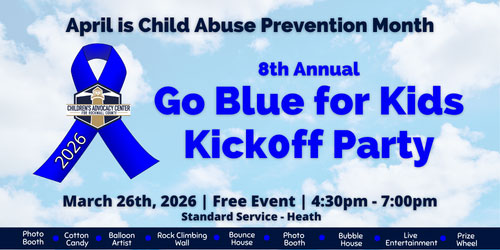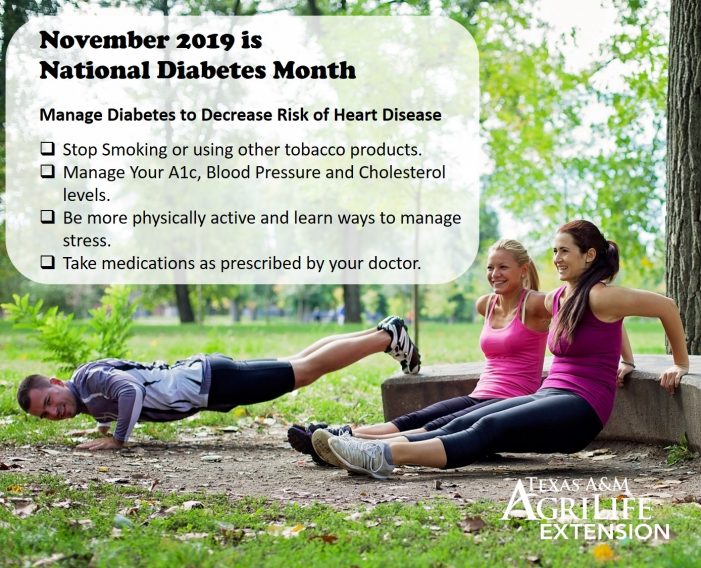 (ROCKWALL, TX – Nov. 6, 2019) November is National Diabetes Month; and this year the National Institutes for Health is highlighting the link between diabetes and heart disease. According the NIH, when blood sugar is high and moving through blood vessels, the heart can be damaged, leading to heart disease.
(ROCKWALL, TX – Nov. 6, 2019) November is National Diabetes Month; and this year the National Institutes for Health is highlighting the link between diabetes and heart disease. According the NIH, when blood sugar is high and moving through blood vessels, the heart can be damaged, leading to heart disease.
“We think of diabetes as having to do with elevated blood sugar levels and heart disease with elevated cholesterol levels; and that is true, but the combination of the two diseases increases the impact of both conditions,” said David Leal, Program Specialist for Texas A&M AgriLife Extension. He continues, “We feel as though they are separate diseases, but they very much go hand-in-hand.”
The NIH reports that we are more likely to develop heart disease and have a greater chance of heart attack or stroke with diabetes. People with Diabetes are also more likely to have certain conditions like high blood pressure or high cholesterol that increase the chances of heart disease or stroke, which is why smoking and the use of tobacco should be stopped. NIH also recommends finding healthy ways of coping with stress like walking, spending time outdoors, starting a creative hobby, or listening to music. Sometimes we eat as a way of coping with stress, but using these alternatives can help us curb “emotional eating” to limit weight gain.
Lastly, the NIH recommends keeping track of your laboratory numbers that indicate diabetes and heart disease like A1c, Blood Pressure, and Cholesterol levels. A1c is a test that shows controlled blood glucose levels over a 3-month period and is important to know so the doctor can track improvement. The link between diabetes and heart disease can be overwhelming, even frightening. By taking these steps we can control or possibly prevent diabetes and heart disease, though we will likely need help.
Dr. Leal stresses the importance of keeping doctor’s appointments. Please do not wait until blood sugar and cholesterol numbers are out of control to finally go to a doctor. Chronic diseases do not go away, but they can be controlled and managed with proper medical care.
For financial assistance with medications, Contact the Texas A&M Health Science Center’s Medication Assistance Program, at 1-866-524-1408.
Submitted press release prepared by Aimee Sandifeer, EdD, Rockwall County Extension Agent, Family & Community Health, edited for publication in Blue Ribbon News.
 Our monthly print edition is delivered free to ~15,500 homes in Rockwall and Heath, TX.
Our monthly print edition is delivered free to ~15,500 homes in Rockwall and Heath, TX.
To share your good news and events, email editor@BlueRibbonNews.com.
Subscribe to our email newsletter here.
Advertising: 214-342-8000 or advertising@BlueRibbonNews.com.







